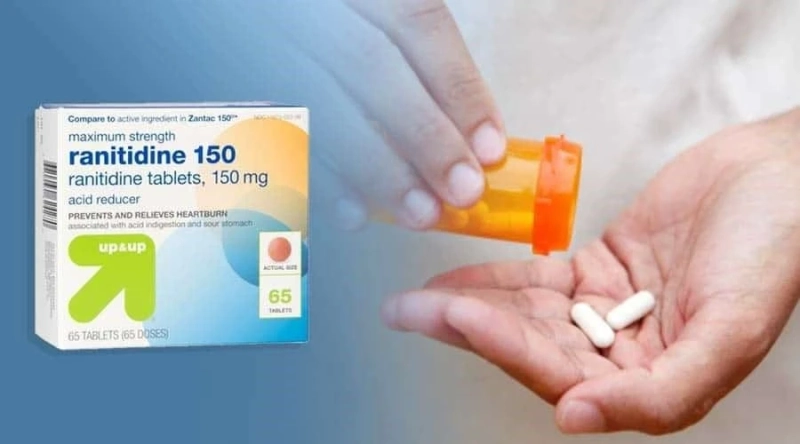Zantac is a drug mainly used to regulate the quantity of stomach acid produced by your stomach. This drug prevents the acid from causing harm to many organs. The FDA, on the other hand, has voluntarily recalled Zantac because its primary component, Ranitidine, degrades into NDMA. Long-term usage of NDMA exposure is likely to lead to the development of cancer cells in many areas of the body WHAT IS ZANTAC? Zantac is also known as ranitidine, a prominent acid-reducing medicine that comes under the histamine-2 blocker class of medications. These drugs were used to help diagnose stomach ulcers caused by excessive acid levels. Over long-term exposure to large amounts of NDMA usage may cause cancer. If you or your loved one's intake Zantac drugs and were eligible to launch a multidistrict lawsuit or participate in a class action against the major Zantac medication manufacturers. NDMA is a well-known environmental pollutant that may be detected in food and water. NDMA is classed as a carcinogen, a rise in its amount in the body increases the risk of cancer Zantac is a popular heartburn medicine that may be used to treat a variety of ailments, including: gastroesophageal reflux disease (GERD) acid reflux peptic ulcer disease stress-induced ulcers hives (off-label) Zollinger-Ellison syndrome According to FDA and other international authorities, ranitidine includes a chemical that causes cancer cells to grow; nevertheless, chronic use of this type of medication also affects other ailments However, ranitidine is only advised for short-term usage in several situations. If you've been taking ranitidine for a long time, talk to your doctor about whether you still need the dose and whether you could benefit from a ranitidine substitute, such as another medication type or a different H2 blocker. According to reports thus far, there is no indication that alternative H2 blockers exist. The antacids present in the drug helps in alleviating heartburn for some persons. We can completely eliminate the stomach antacids by lifestyle adjustments, such as avoiding specific foods and beverages, spicy foods, big or fatty meals, and alcohol, by controlling all these items helps to prevent the attacks of heartburn. Many people are probably aware that Zantac, and other generic versions of the heartburn drug ranitidine, have been voluntarily recalled. After testing revealed significant amounts of N-nitrosodimethylamine inside the Zantac and found a cancer-causing carcinogen presence inside the medicines. After the concern test result, the FDA requested that manufacturers withdraw all forms of the medicine ranitidine off the market. You will not acquire cancer if you take Zantac once or twice a day. If you use significant dosages of the medicine over a lengthy period of time, you will have an increased risk of cancer. Overuse of NDMA has been demonstrated in clinical studies to increase the chance of acquiring a wide range of cancers. It should be noted, however, that not all Zantac products have been contaminated with high levels of NDMA. Zantac-caused cancers differ from person to person but some identical things are that this cancer is mostly restricted to the digestive tract of our body, where the digestive related organs come into contact with digested NDMA. Cancers of this kind include: Esophageal Cancer: It is a kind of cancer that affects the esophagus or windpipe. The drugs containing stomach acid can enter affect the esophagus, which is connected to the stomach Stomach Cancer: After intaking the Zantac drug for the stomach acid the NDMA concentrations are frequently greater. This generated substance affects the stomach lining protected by a mucus coating. Intestine Cancer: As the chemical substance exits from the stomach and passes the intestines and causes cancer to grow. Liver Cancer: Toxins such as NDMA present in the blood which affects the liver and causes liver cancer Kidney Cancer: The kidneys also assist the body handle pollutants, and when they are exposed to NDMA, they can develop kidney cancer. Colorectal Cancer: It is a kind of cancer that occurs in the colon and rectum. They are likely in contact with cancer-caused cells. This cancer will only when we are in the final stage of cancer spread cells Cancer may result in death as well as pain and suffering. Assume you or a loved one took Zantac and later discovered they have cancer. In such a case, you may be able to file a lawsuit against the dishonest manufacturers of Zantac or over-the-counter Zantac to get the compensation you are entitled to. Similarly, if you used Zantac and are free from cancer, you might still seek compensation by filing a class-action lawsuit against the maker of prescription Zantac or Zantac OTC- it helps to recuperate the money spent on the medication. Speak with a local attorney to find out whether you are eligible to seek redress from the Zantac medication makers who produced and marketed a potentially cancer-causing drug. Most attorneys will provide you with a free, no-obligation session so that you may freely discuss your particular case without feeling obligated to work with them. Life is valuable and short, therefore do not be afraid to take legal action against the dishonest Zantac producers legally in order to receive the reimbursement that you want and deserve.What exactly is NDMA, and what effects does it have?
What Is Zantac/Ranitidine Used For?
What should you do if you have a ranitidine overdose?
Why has Zantac been recalled?
Risk of Getting Cancer After Taking Zantac
Cancers Caused by Zantac
Filing a lawsuit
Speak to an Attorney
How does Zantac lead to Cancer?


